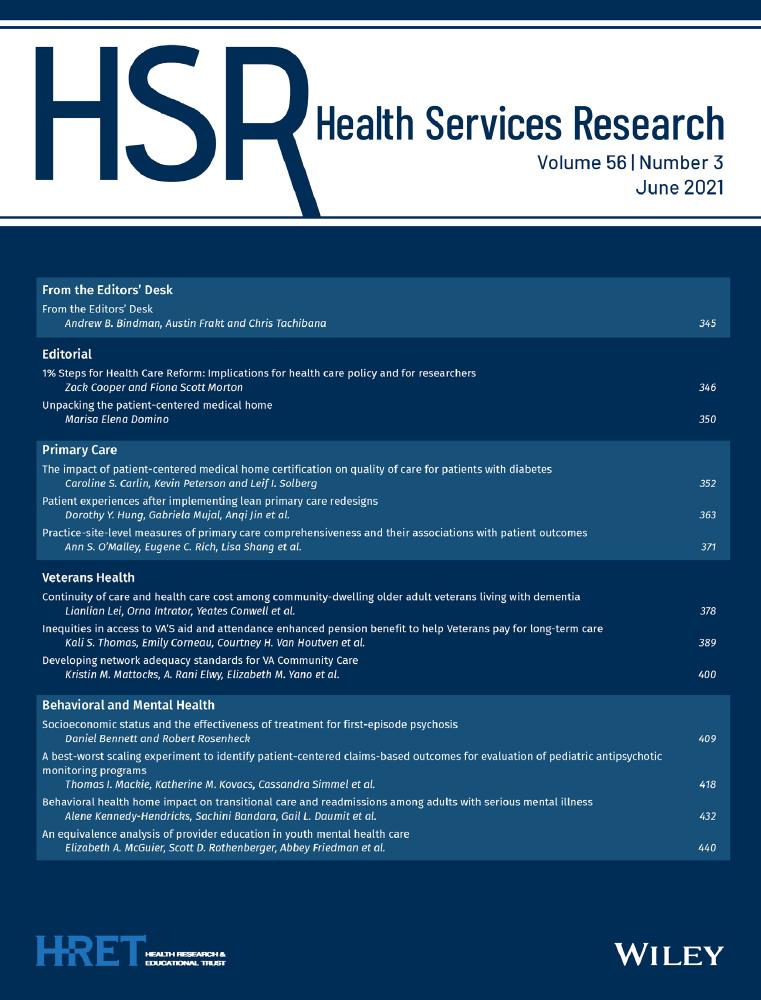Headline
Enrollment in Maryland’s Behavioral Health Homes program increases outpatient care after hospitalization for Medicaid enrollees with serious mental illness (SMI).
Background
Maryland’s Medicaid Behavioral Health Home (BHH) program, established through the Affordable Care Act’s Medicaid health home waiver, connects eligible individuals with SMI with care coordination and transitional care services following hospitalization. This study evaluates whether BHH enrollment increases use of post-hospital outpatient care and reduces readmissions among Medicaid enrollees with SMI.
Findings
This study compared Medicaid claims data for over 3,300 people with SMI enrolled in a BHH to more than 8,900 individuals with SMI who were not enrolled. Over a three-year period, BHH program participants were more likely to have outpatient appointments after hospital discharge: (1) mental health visits increased by four percentage points within seven days and by five percentage points within 30 days following a mental health hospitalization; and (2) physical health outpatient visits increased by two percentage points within seven days and 30 days after a physical health hospitalization. BHH enrollment showed no significant impact on readmission rates following either mental or physical health-related hospitalizations.
Policy/Program Takeaways
Maryland’s Medicaid BHH program demonstrates that BHH and other programs that integrate physical health care coordination into specialty mental health care settings may facilitate greater access to follow-up care and improved care transitions for individuals with SMI. Policymakers and health care providers can consider this approach to improve continuity of care for people with serious mental illness.

